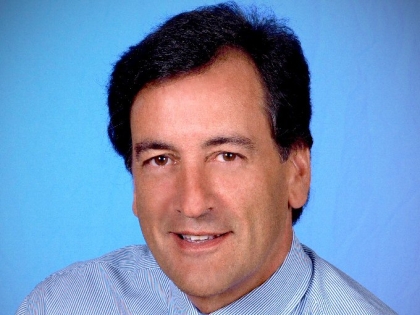
Senator Fuschillo Announces Senate Passage of Property Tax Relief Measures
Charles J. Fuschillo Jr.
January 31, 2011
-
ISSUE:
- Property Tax
Legislation Would Cap Property Taxes to Save Money for Families and Businesses, Lower Costs to Schools & Municipalities Through Mandate Relief
Senator Charles J. Fuschillo, Jr. (R-Merrick) today announced that the New York State Senate passed property tax relief legislation he cosponsored to reduce the property tax burden on Long Islanders, which is among the highest anywhere in the country. The legislation would create a cap on local property taxes and provide mandate relief for school districts and local governments to help lower costs.
“High property taxes have made Long Island increasingly unaffordable and are a main reason why so many families and businesses have left New York State. Providing tax relief is the number one issue we face, and we can’t get our state back on the right track without addressing it. Capping property taxes and providing mandate relief will make sure that school districts and local governments reduce their spending and will ease the tax burden which has pushed so many Long Island families and businesses to the breaking point. The Assembly should join the Senate in approving these tax relief measures,” said Senator Fuschillo.
The property tax cap legislation would deliver tax relief by limiting the ability of school districts, local municipalities, and special districts to raise taxes on local homeowners and businesses. Under the property tax cap legislation (S2706):
* A school district's tax levy limit would be capped at either two percent or the annual increase in the consumer price index ("CPI"), whichever is less. Taxes necessary to support the local share of capital expenditures would be excluded;
* Voters would still have the opportunity to vote for their school district’s tax levy proposal in May. If the proposed tax levy is within the district's tax levy limit, then a majority vote would be required for approval. A proposed tax levy exceeds the district's tax levy limit could only be approved with 60 percent of the vote. If the proposed tax levy is defeated, the district would need to submit a second levy proposal for approval in June, with the same voter approval standards applied. If the second proposition is defeated, then the district would be required to adopt a tax levy that is no greater than the prior school year.
* A school district would be allowed to carry over unused tax levy capacity from the prior year, but could use this carryover levy capacity to increase its tax levy only an additional 1.5% in any year; and
* In the event a district's actual tax levy exceeds its authorized levy due to clerical or technical errors, the erroneous excess levy must be placed in reserve to offset the levy for the next school year.
If enacted, the law would take effect for the 2012-13 school year.
The bill also provides for the same cap to apply to taxes levied by municipal governments. Local governments that do not levy an amount up to the cap in one year can rollover that amount up to 1.5 percent in the following year.
Additionally, the Senate passed mandate relief measures to help alleviate state mandated costs on school districts and local municipalities, which ultimately get passed down to local taxpayers. The legislation (S2707) requires any state mandated program imposed on municipalities or schools districts which created any net additional cost in excess to be funded by the state.
The Senate also passed a resolution urging the Governor and his mandate relief and Medicaid redesign teams to provide lasting and real property tax relief. Specifically, the resolution urges the mandate relief panel to:
* Focus on New York’s service delivery structure that requires school districts, local governments and other local taxing districts to administer and fund mandated programs;
* Look for ways to reduce the costs of mandated programs on schools and local governments by determining how school districts and local governments may be given greater ability to control costs;
* Examine the reason for delays in state reimbursement for mandated programs;
* Consider the practice of cost-shifting of mandated programs; and
* Identify opportunities for eliminating or reducing unfunded and underfunded mandates imposed by the New York State government on local governments and school districts.
The resolution also urges the Governor’s Medicaid redesign panel to work with Medicaid stakeholders to conduct a comprehensive review of the state’s Medicaid program, and make recommendations for cost saves and quality improvement measures to meet specific budget reductions for Medicaid spending.
The property tax cap and mandate relief legislation continues Senator Fuschillo’s efforts to change the direction of the state following billions of dollars in new taxes, fees, and spending increases approved by Democrats in the Senate and Assembly over the last two years, all of which he strongly opposed. Recently, the Senate also passed legislation supported by Senator Fuschillo to create a state spending cap and prevent tax increases without a two-thirds “supermajority” vote in the Senate and the Assembly.
Both the property tax cap and mandate relief legislation has been sent to the Assembly for consideration.
####